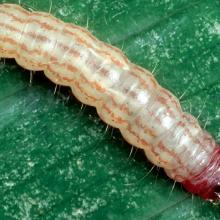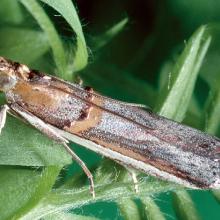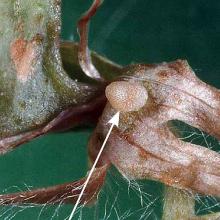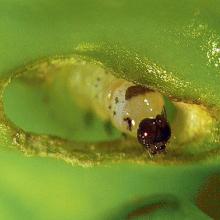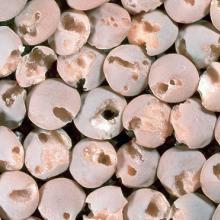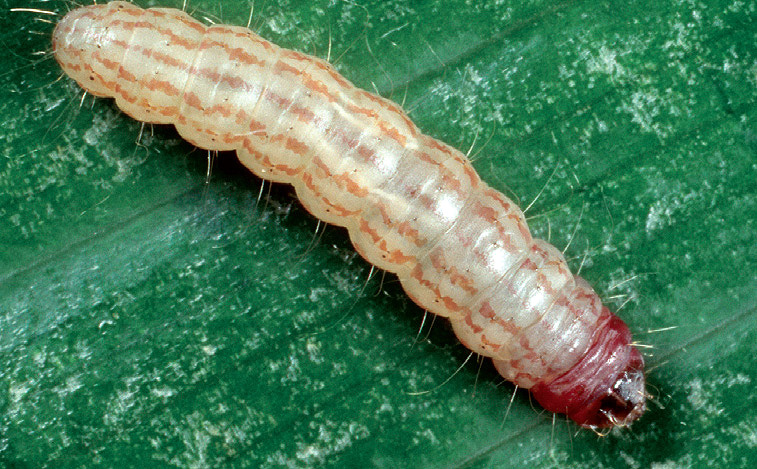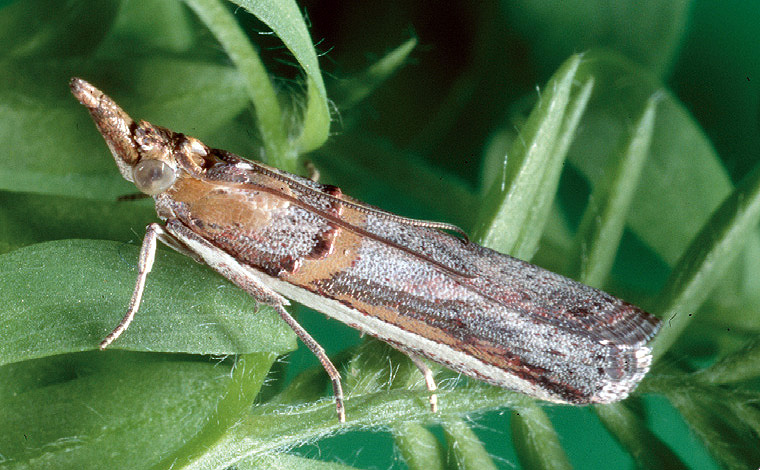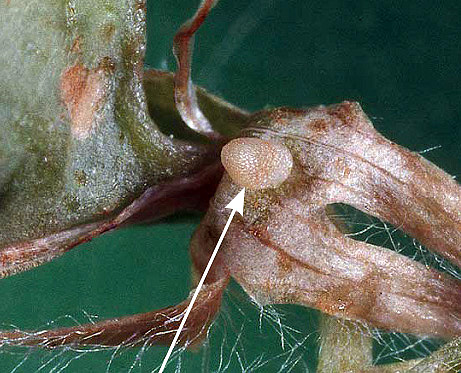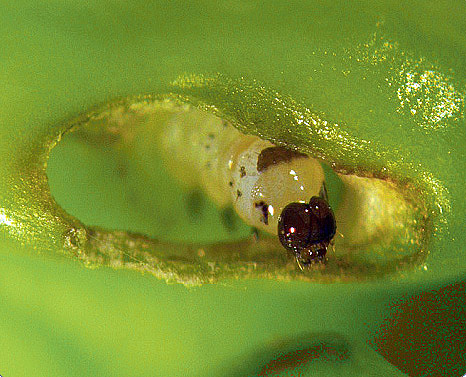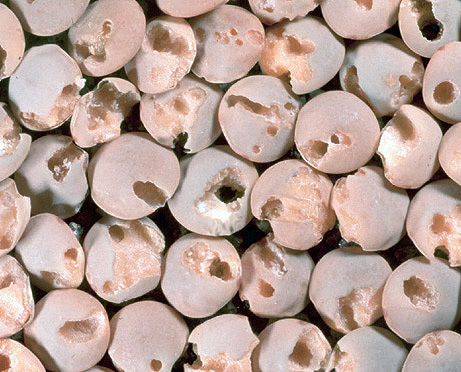Lucerne Seed Web Moth
Etiella behrii
Newly hatched larvae are approximately 1mm in length and are light orange. As larvae develop, their body colour changes to a pale green, sometimes cream, with distinctive pink stripes. Mature larvae are up to 10–12mm long and pinkish red in colour. Adults are grey, 10–15mm long with a protruding beak.
The forewing has a distinctive white stripe running along its full length. At rest, the wings are folded over the body making the moth appear long and slender. Up to three generations occur per year from Spring to Autumn.
Regular monitoring for adults using a sweep net should occur from the onset of pod formation. Management should be based on timing insecticide application to target the presence of adult moths within the crop prior to egg lay.
The degree-day model can be used to identify the onset of significant Etiella flight activity within crops. The model requires daily maximum and minimum temperatures to be entered from June 21. From these the model identifies the date to commence spraying, when 351 degree-day units have been received.
Eggs are commonly laid in the calyx of developing pods. Larvae bore into pods within a short time of hatching and begin feeding on developing seeds. This results in yield loss and a reduction in quality. Larvae have the ability to web several pods together to continue feeding.
Glossy shield bug and spined predatory shield bug.
SARDI; SARDI; SARDI; SARDI; SARDI
 Skip to main content
Skip to main content
